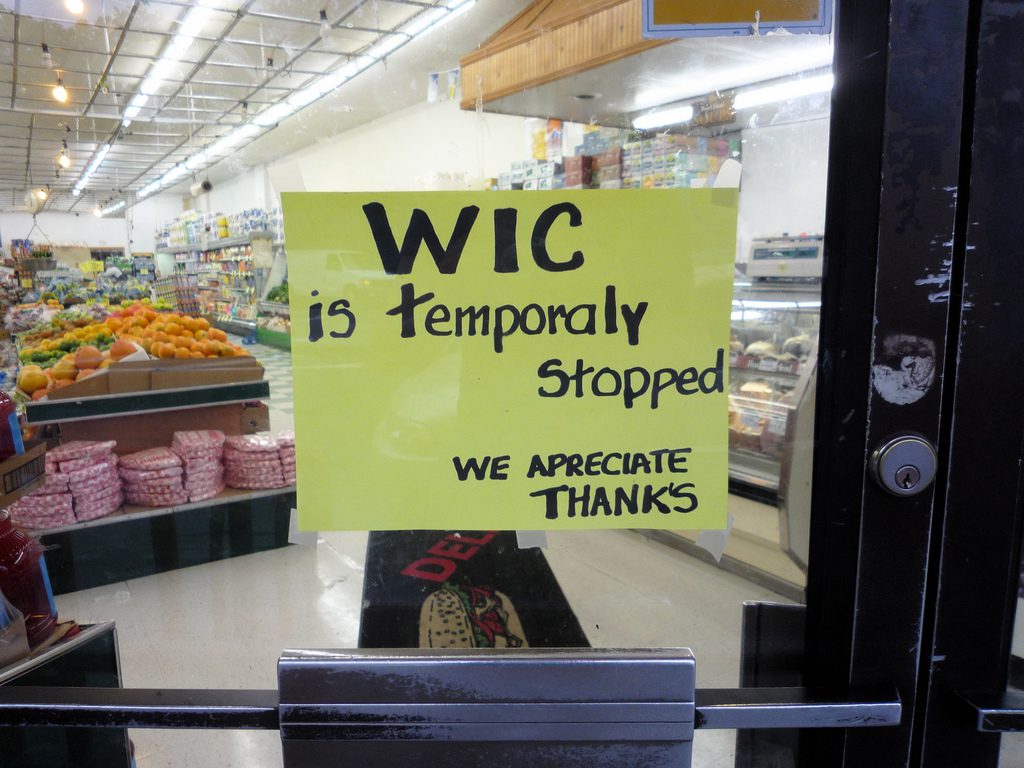The public schools in my hometown of Richmond, Virginia, are not known for superb quality—one of them had so pandemic a rodent infestation that it was subsequently overrun by snakes—but give the incompetent buffoons some credit. They know a good handout when they see it: Richmond Public Schools (RPS) recently signed on to a federal program that “encourages school districts to feed everyone by eliminating many of the restrictions in the National School Lunch Program.”
It’s bad enough that we’ll have more students belly up to the government food trough (if you’ve never had a taste of “free” government lunch, consider yourself lucky); instead, consider RPS Superintendent Dana Bedden’s positive gushing about the new program: “I like it for the health and nutrition aspect, but this also removes the stigma of free lunch. Everyone can eat.”
Ah, “stigma:” one of the last great impediments to full-blown government dependency. With all due respect to Bedden, he and the rest of Richmond Public Schools are doing a grave disservice by attempting to remove the “stigma” associated with free government handouts. While the city’s busy filling its school buildings with vermin and serpents, it might consider inculcating a modicum of self-reliance within its studentry.
Not to tread too heavily on too many sensitive progressive ideals, but there should be a stigma surrounding government dependency; that’s not to say we should adopt a campaign of aggressive public shaming for anyone who goes on the dole, only that we shouldn’t create an atmosphere—especially amongst children—in which “free lunch” is a no-big-deal kind of thing.
Here’s What Happens Without Stigma
That’s easier said than done. The Left wishes to make it a no-big-deal kind of thing because the Left wants the citizenry as dependent upon government as possible. “Once Stigmatized,” the New York Times
This is what you get when you “remove stigmas.” At one time, public assistance was looked upon as a moderate failure—not an irredeemable sin or uncorrectable wrong, but something you wanted to avoid if possible. European socialists realized a long time ago that such well-intentioned opprobrium served to weaken the dependent bond between citizen and state, which is why you can find single mothers on 20 years of welfare across the pond: continental leftists figured this game out a long time ago, well before the sad sacks at Richmond Public Schools. If you want to see the future of American welfare in the hands of people like Superintendent Bedden, look to Europe, where many countries have de-stigmatized their way into astronomical debt levels and widespread, chronic citizen helplessness.
Keeping welfare firmly in the stigmatized realm is not merely a conservative crusade; it’s good policy, too. There is strong evidence that welfare use is transmitted from parents to children; that is to say, a parent’s using welfare significantly increases the likelihood that the child will use it, as well. This makes Richmond’s “free lunch” program all the more troubling, of course, for it essentially bypasses all parent involvement, at least in the children’s eyes, and grants a government handout directly to the child himself. So the welfare state has found itself wanting, and has determined that the most efficient transmission of its benefits, and thus its own continued existence, is directly into schoolchildren’s mouths. That’s efficiency.
The rugged strain of American self-reliance—or self-dependency, if you like—is not entirely gone. Just the other day, Maine Gov. Paul LePage reinstated the state’s “workfare” requirements: there will be no more handouts in Maine without work requirements for able-bodied adults, to save the state’s scant resources “for those who are truly in need and who are doing all they can to be self-sufficient.” Rep. Paul Ryan’s anti-poverty plan also takes significant steps towards the kind of “workfare” reform designed by conservatives in the 1990s. Yet with tens of millions of Americans still on food stamps, there’s still plenty more work to do, especially considering that the Left always resists efforts to wean people off government dependency and place them on the road to upward mobility: as long as there are enough people on the government rolls to “demonstrate continuing need,” Progressives will be happy. So the struggle is not merely to reduce welfare use but to fight against the political faction that badly wants to swell the welfare ranks, and keep them swollen.
Those who have truly fallen on hard times deserve our genuine sympathy, and we should not snarl at them for turning to as easy and accessible a source of relief as government welfare. Yet we should also avoid making needy people feel comfortable being dependent upon the government. To do so is would not be merely bad public policy—it would be disingenuous and harmful to poor people, who more than anything need the mental and emotional drive to be free from government dependence.
Daniel Payne is a senior contributor at The Federalist. He blogs at Trial of the Century. You can follow him on Twitter.



